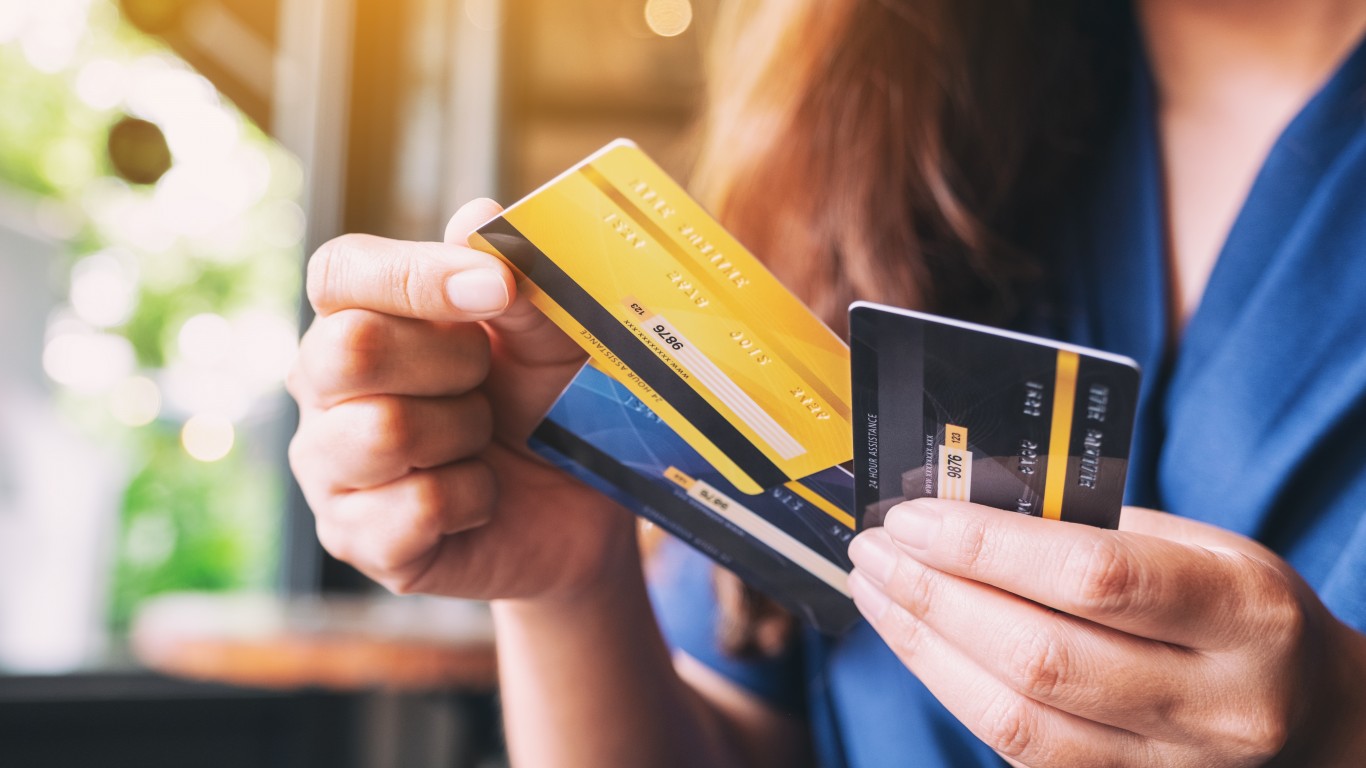
Is it better to live without using credit cards at all? Are you taking on too much risk by only using a debit card? Are you leaving free money and rewards on the table by paying for everything with debit? How much credit card debt is unsafe, and can you own multiple credit cards without incurring any debt?
24/7 Wall St. Key Points:
-
If you are responsible with your purchasing habits, a credit card is much more useful and safer than a debit card.
-
If you have bad financial discipline, a credit card is an easy way to find yourself in deep financial trouble.
-
The right cash back credit card can earn you hundreds, or thousands of dollars a year for free. Click here now to see our top picks. (Sponsor)
These are common questions for those who are starting out their journey with credit cards, or who are unfamiliar with the world of credit, debit, debt, and more. And like most things, the answer varies from person to person. We looked into one person who was asking these exact questions, and we analyzed the answers we found.
The Credit Card Question
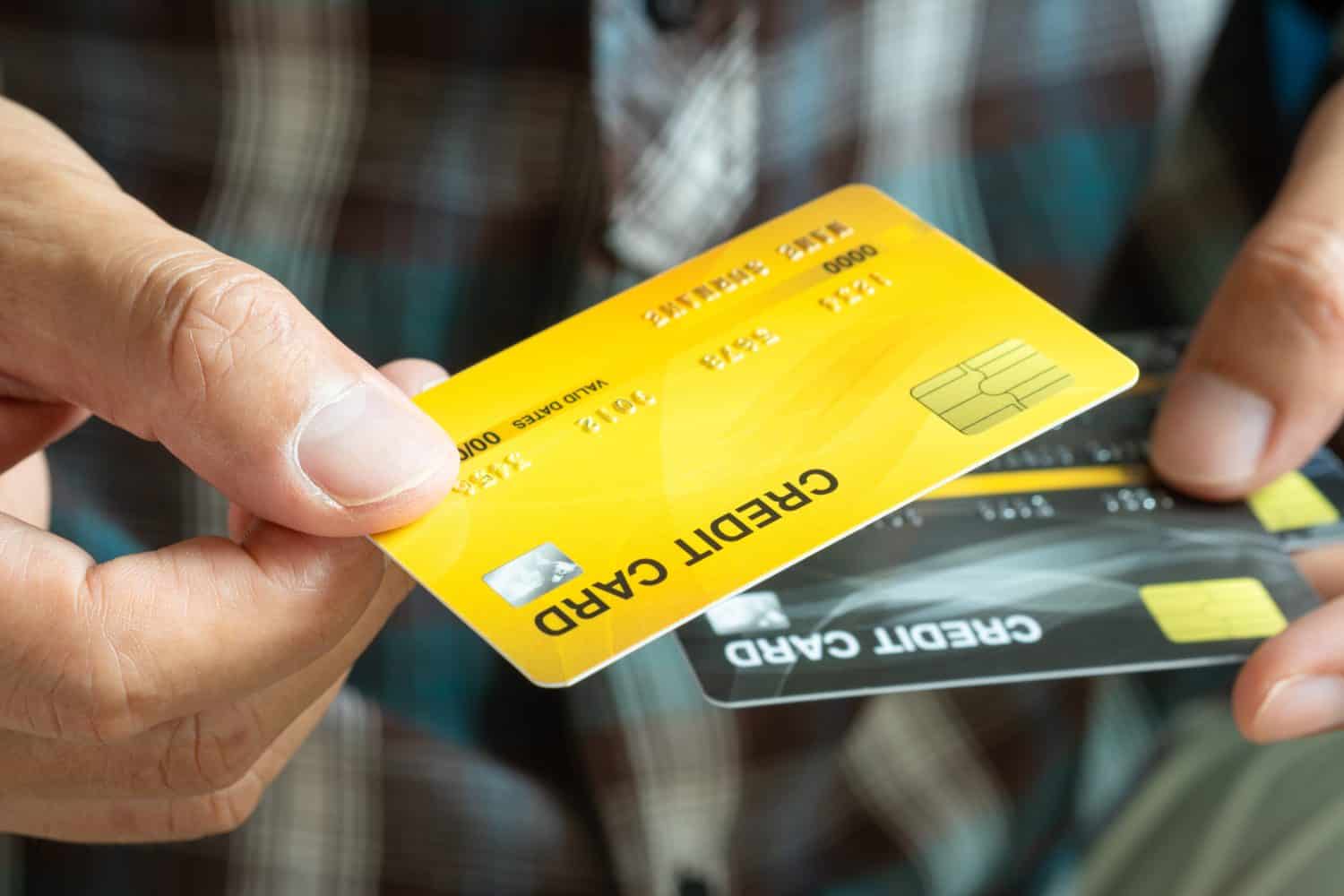
Dancing through life, and also through Quora, we found a question from 48-year-old user (now 53), Theresa Coe regarding debit cards versus credit cards. Her title, “Why do people use debit cards instead of credit cards?” is followed up with personal anecdotal reasons why she prefers debit cards. She states that she watched her father go bankrupt via credit card debt. She continues to explain that because of this, she has never owned a credit card, has an intense repulsion to debt, and doesn’t like the “buy now pay later mentality.”
She describes credit cards as a con and considers them unwise. However, she recognizes in her post that only using cash or debit cards might not be possible for “people on low incomes with children.” She finishes her post with, “I’m not well off, but at least I have no debts and have built up a small safety net of savings, just in case I need them.” It’s a long post, in which she details how only paying the minimum payments will end up costing you more money. The vibes are a little judgy, and it’s obvious that she places a lot of morality on being debt-free and muses that perhaps her way of doing things is just “old-fashioned.”
The original post raised around 143 responses, of which people agreed, disagreed, defended their credit card use, became introspective about their finances, and pointed out the generational attitudes toward credit cards and debt. A big theme in the responses is financial discipline.
Please remember that the original post, the comments in the thread, and this article are all opinions. You should always consult with an expert before making any expensive financial decision.
Risk of Debit Cards

There is a common belief that debit cards are generally risk-free. This isn’t exactly the case. Debit cards carry the risk of loss limits. According to the Federal Trade Commission website, if you are fortunate enough to notice your credit card or debit card is lost before someone uses it, you aren’t held liable for any of the withdrawals, transactions, or charges that you personally didn’t authorize. Cut and dry.
Let’s say that your number is stolen at a drive-through window, or from a fake website. If you check your account frequently and notice that some unauthorized charges are popping up and then you report it, your liability could change. If you used a credit card in that scenario, by law, the maximum amount you could be held liable for is $50.
However, if you used a debit card, how long it takes you to notice and report the unauthorized charges depends on how much of the loss you are personally liable for. If you are fortunate enough to notice and report the card loss what you are responsible for depends on how long it took. If you report within two business days, legally your maximum loss is $50.
If you report between 2–60 calendar days after your statement is sent to you, your legal maximum loss is capped at $500. And if it takes you more than 60 calendar days, you are legally responsible for those fraudulent transactions. This means that if someone accesses your bank account through your stolen debit card or card number, you have no recourse for recuperation of that money if it takes you more than 60 days to notice. This is unlimited liability.
One of the biggest risks besides fraud is overdraft fees. It can often be much more than normal credit card interest rates, and it varies from bank to bank. Some banks and credit unions offer low fees, or a certain buffer amount (like you can spend $50 overdraft without incurring a fee), but it could be as expensive as $35-$50 per transaction that pushes in overdraft. And that could cost you up to $180 in fees per day if you make multiple overdraft transactions. There are also things like NSF (non-sufficient funds) fees or bounced check fees, continuous negative balance fees, and overdraft protection transfer fees. Some fees offer overdraft coverage, which would simply decline transactions that would result in an overdraft. This feature often has to be asked for specifically, and might not be easy to get.
No matter how responsible you are with money, and no matter how much you currently have in your savings account, one or two really bad financial months could drain those funds quickly if you are like 12% of Americans (66 million people) that have zero savings, or the 27% of Americans that have less than $1,000 in savings, or 28% of Americans that have six months or less worth of savings- a job layoff or a natural disaster- could quickly be in trouble. That means 67% of Americans could not live more than 6 months maximum without alternate income. To be clear, this is the result of the capitalist system we live in. Again, it isn’t inherently immoral to belong to one of these categories. In these cases, having lines of credit available could be invaluable for survival.
Benefits of Debit Cards
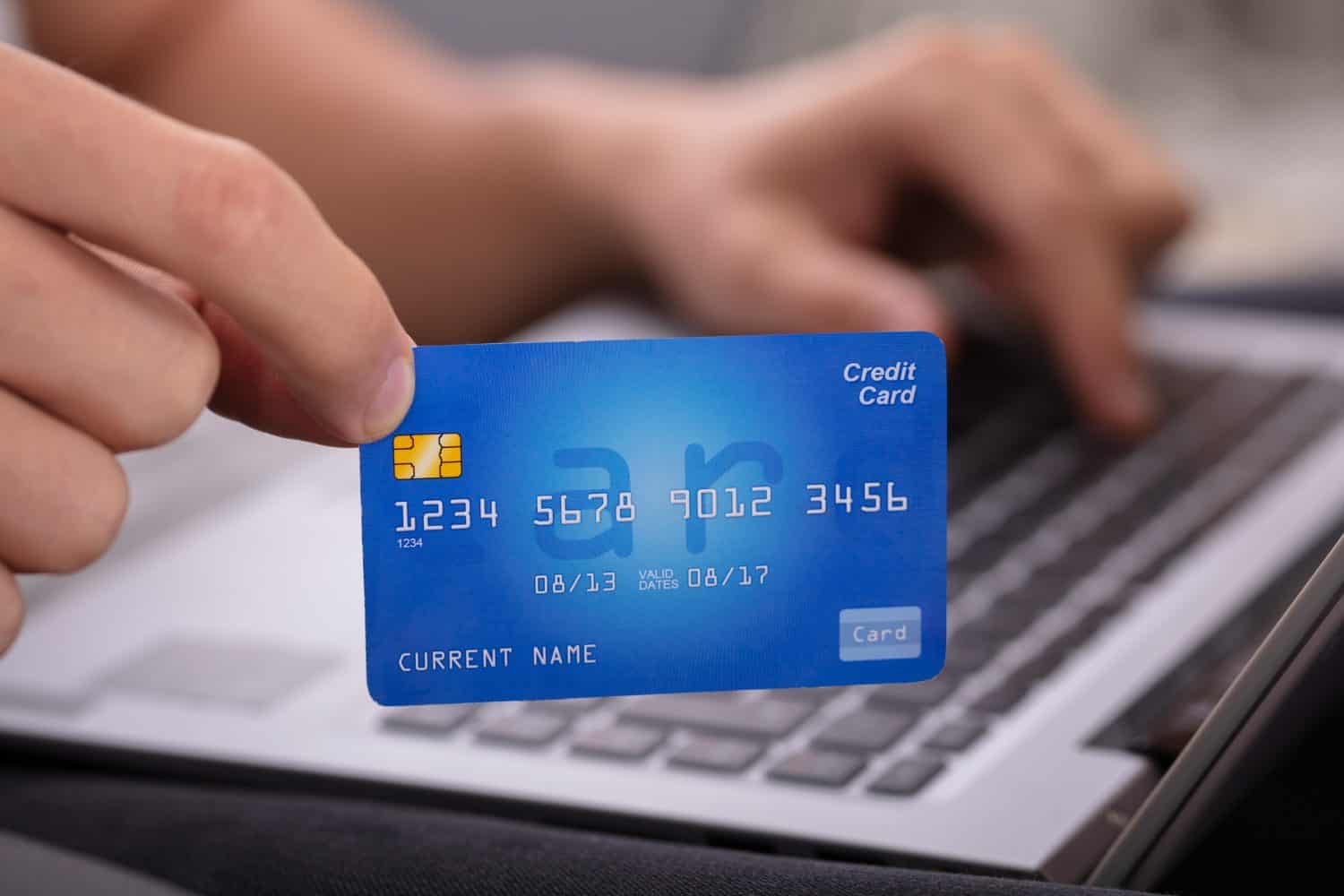
For people lacking financial discipline, or don’t have a high enough credit score built in order to achieve your lifestyle goals, having a debit card is a good way to start. Debit cards just come with having a bank account and function as a way to access the money in your account.
Debit cards can be safer to carry than cash, as you are able to report to your bank if it is lost or stolen. Making small purchases with your debit card can help you build credit, and avoid debt. Debit cards can limit your spending if you find it too hard to save money, and they can also be run as a credit transaction, which gives you access to most vendors.
Credit Cards and Financial Discipline

One of the logical holes in OP’s argument is that you either have a credit card and have a mountain of debt you couldn’t possibly escape from, or you don’t have a credit card and have zero debt. These simply aren’t the only options, and it’s not even true. There are plenty of people who are in debt and don’t use credit cards. Debit cards still have the capability to go into overdraft (or spend more money than the balance of your banking account) and incur debt and fees.
Not everyone who uses credit cards has credit card debt. Plenty of people pay the full balance of their credit cards on time and avoid incurring interest. The difference is a matter of financial discipline and lucky circumstances. And, it might be worth noting that even the entire United States is Trillions of dollars in debt, and that isn’t seen as a moral failure. It might be worth reframing your thinking around debt to uncouple it from morality and associate it with survival and your financial goals.
So, what is the definition of financial discipline? Most sources refer to it as the concept of a “constant habit of making sound monetary decisions regarding savings, investments, and expenditures.” Some habits that could help you be financially disciplined could be distinguishing between needs and wants, managing debt, prioritizing expenses, and eventually achieving financial stability. You can have financial stability while still having some debt. The key is to learn how to make your debt work for you, instead of against you.
There are forms of debt that are considered “financial leverage,” that can help you achieve your financial goals. It isn’t inherently bad. Things like student loans and mortgages, for example, are loans you take out to buy things that will increase in value. David Mook, the senior vice president and chief private banking officer at U.S. Bank Private Wealth Management said, “You don’t want to be overleveraged in any way, shape or form, but leverage in moderation can be a really powerful tool.”
“Bad debt,” really just refers to the amount of debt you personally have tolerance for, or if it’s more than you can manage while remaining comfortable. This makes it a very subjective conversation. And with debt consolidation strategies, you can use credit cards to help you manage debt and leverage it to your advantage. If you aren’t sure where to start, consulting with a financial planner/ financial advisor might be something to consider.
How Many Credit Cards Should You Have?
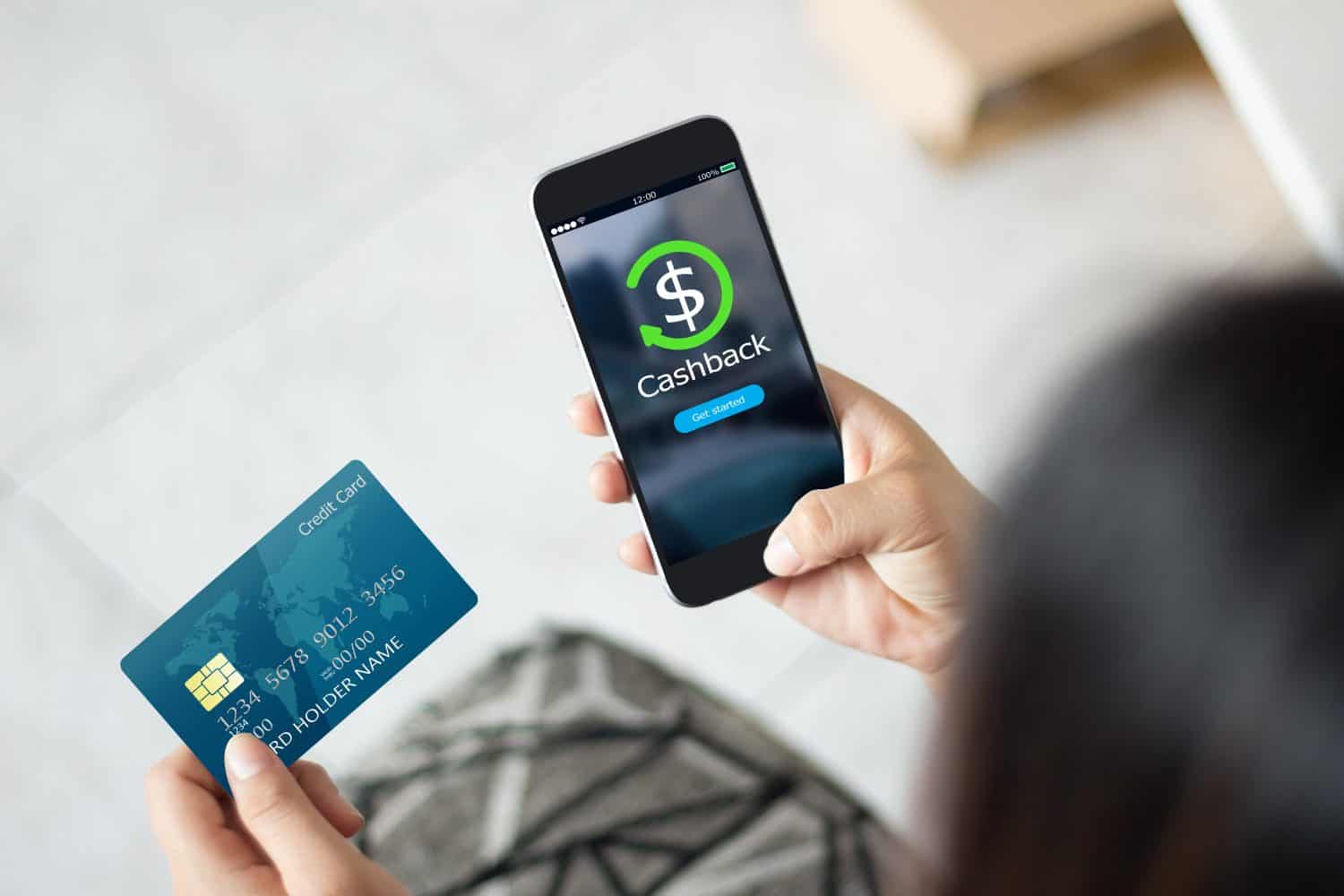
Most economists say that there isn’t a specific number you should have or strive for, and how much debt you should have a subjective person-to-person answer. The correct question is: how many credit cards can you comfortably manage without missing monthly payments? Having 3–5 credit cards that do different things in terms of rewards and benefits that you can strategically use to maximize your purchasing power while also building your credit score.
But, if you open too many at once, and are missing monthly payments, this can quickly tank your credit score. Scoring formulas will not dock your credit score for having more than average amounts of credit cards, as long as you are managing them. You will, however, have negative consequences for not having enough credit cards. Having fewer than 4 credit accounts (a mix of credit cards and loans) can put you at risk of having a “thin file.” This just means that there isn’t a lot of data for credit-scoring formulas to accurately add you to the standardized scoring system. So, if you have a thin file, you are at big risk for unexpectedly large expenses exceeding your credit limit and tanking your score. Something that having multiple credit cards does is allow you to do is spend less than 30% of your overall credit limit. Doing this will build your credit.
For example, let’s say you have one credit card with a $500 limit. You also have student loans and a mortgage. In other words, you have a thin file, but you feel that you can comfortably manage your credit accounts. With your $500 limit card, having over $150 in debt on that card that you don’t pay off, will most likely negatively impact your score. As you can imagine, a large expense might come up, let’s say that your car needs an urgent repair that costs $750. You might have that in savings, but you also might not. On the other hand, let’s say that you have three credit cards with a combined limit of $5,000, you would be able to use credit to make the car repair and manage the payments in a way that could build your credit.
Credit Card Benefits
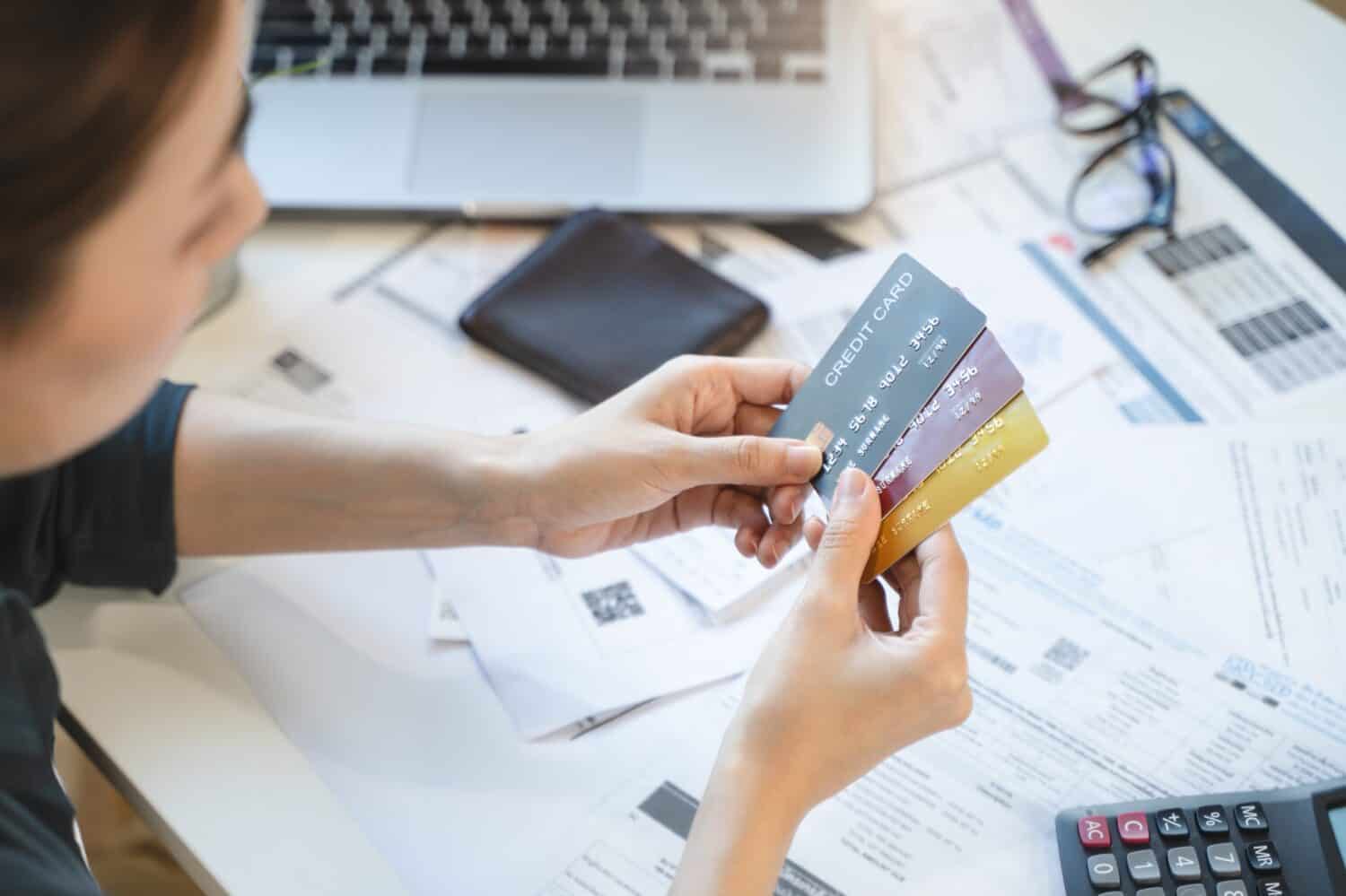
There was an overwhelming number of responses affirming the benefits of credit cards. Some of these included financial security, purchase protection, credit score building, and credit card rewards. One of the best ones is the “30-day float.” The 30-day float is the concept that if you are a credit card holder, you can delay paying for something for 30 days (depending on the length of the card’s billing cycle). And if you are new to this planet, if you pay your “revolving debt” off within 30 days, you won’t incur interest payments. Of course, some credit cards have a 0% interest rate for the first 12–15 billing cycles. That makes it easy to transfer balances of other credit cards onto one to freeze interest altogether. This benefit can be wonderful if you are focused on reducing your debt.
Another large benefit of credit cards is the rewards. Some credit cards come with mileage, points, or cashback percentages on all purchases. These rewards can help you score major discounts on larger items, or be used to pay down your monthly statement. It’s essentially a way to earn back free money while you are using your credit card to make purchases you would have made anyway.
Rewards cards come in three different forms: cashback, points, and mileage. Depending on your lifestyle, (frequent traveler, big-box buyer, local business supporter, food at home, dining out, etc.) should dictate which type you go for. For example, if you are a person who travels several times a year, it would be extremely beneficial to use a mileage credit card. You could earn free flying miles when you purchase flights, gain access to the airport and in-flight luxuries, get credits for rideshare services, and more.
If you are someone who enjoys cooking or eating most of your food at home, you could get a bonus category cashback card that gives you 3%–5% cashback on groceries. Even if you are someone who feels overwhelmed with this concept and would prefer an easier and more streamlined way, a flat-rate cashback card that gives you 1%–3.5% cashback on every purchase you make could be a great start to seeing the benefits of a credit card.
Purchase protection is another crucial benefit of having a credit card. You should only be paying for online purchases (or as many purchases as you can) on a credit card. This offers purchase protection: protection from hackers, scams, undelivered merchandise, etc. If your credit card is compromised, a hacker steals the bank’s money, not yours. This is much easier to solve, and the bank or issuer is severely invested in recovering that money from the person who stole it. If you are only paying for things, especially on the internet, with a debit card, if a hacker or scammer gets that information, they have access to YOUR money. And there is much less of an incentive for your bank to recover your money than their money.
Purchase protection doesn’t only apply to your physical purchases. Many credit cards offer extended warranties past the manufacturer warranties timeline, increased cell phone and rental car insurance, and even things like roadside assistance.
Some rentals require a credit card as a security deposit. These amenities of this nature are rental cars, hotel rooms, booking a flight, making restaurant reservations, and booking appointments such as haircuts or physical therapy. Online purchases are also much safer to conduct with a credit card than with a debit card.
If your debit card is compromised online, that could have a real negative impact on the cardholder. Using a credit card for purchases oftentimes allows the cardholder
Having a credit card means that you can change your credit score. Improving your credit score means you can qualify for loans to purchase transportation, better insurance rates, start a business, buy a home, a boat, etc. If none of those things interest you, then having a credit card legitimately might not be something you need to concern yourself with. Does it mean that credit cards are a scam? Yes, and so is capitalism. Whether you agree with that statement or not, it is clear that you must have a credit card to participate in the current economic system we have culturally adopted and fed into
Are Credit Cards a Scam?

The short answer is yes, but it’s more nuanced than that. Is just the key to the kingdom a scam, or is it the kingdom that is the scam? Being birthed into the world of capitalism means that we are within a culture that deems humans with access to capital worthy of land, homes, cars, property, education, healthcare, high-quality food, free time, traveling, experiences, safety, and more years to live and power. Those things are much harder to achieve if you don’t have access to capital. Is money real? Are credit scores real? Those are the wrong questions to ask. Whether they are just social constructs made up by the wealthy class to control the underlings or a fair and important structure to our culture, it doesn’t matter. We are being required to play into this system of credit score building and money borrowing and revolving debt if we want to be able to dictate the kind of lifestyle we have.
Are You Still Paying With a Debit Card?
The average American spends $17,274 on debit cards a year, and it’s a HUGE mistake. First, debit cards don’t have the same fraud protections as credit cards. Once your money is gone, it’s gone. But more importantly you can actually get something back from this spending every time you swipe.
Issuers are handing out wild bonuses right now. With some you can earn up to 5% back on every purchase. That’s like getting a 5% discount on everything you buy!
Our top pick is kind of hard to imagine. Not only does it pay up to 5% back, it also includes a $200 cash back reward in the first six months, a 0% intro APR, and…. $0 annual fee. It’s quite literally free money for any one that uses a card regularly. Click here to learn more!
Flywheel Publishing has partnered with CardRatings to provide coverage of credit card products. Flywheel Publishing and CardRatings may receive a commission from card issuers.
Thank you for reading! Have some feedback for us?
Contact the 24/7 Wall St. editorial team.




